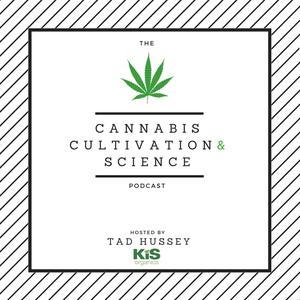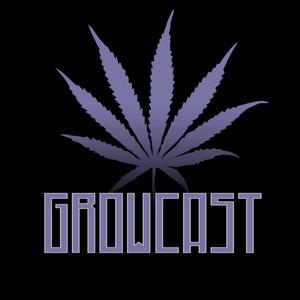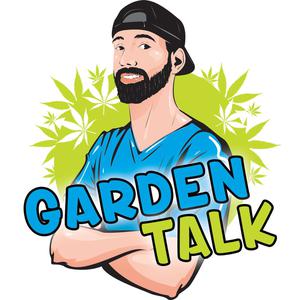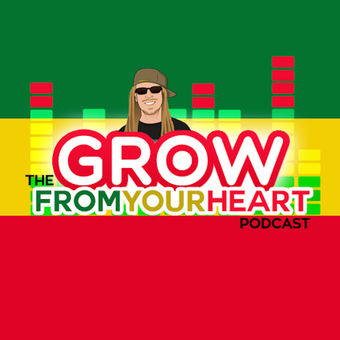
Cannabis Cultivation and Science Podcast
Tad Hussey.
Welcome to the Cannabis Cultivation and Science podcast, I’m your host, Tad Hussey of KIS Organics. This is the podcast where we discuss the cutting edge of organic growing from a science based perspective and draw in top experts from around the industry to share their wisdom and knowledge. If you want to hear the latest in growing technology and methods, this is the place..
- 43 minutes 55 secondsEpisode 142: Isopods, Pyrethrins, REIs, and More with Suzanne Wainwright Evans Pt. 2
My guest this week is my good friend, Suzanne Wainwright-Evans also known by many as The Bug Lady. She is an Ornamental Entomologist specializing in integrated pest management. Suzanne has been involved in the Green Industry for more than 25 years with a primary focus on biological control and using pesticides properly. She is a graduate of the University of Florida with degrees in both Entomology and Environmental Horticulture. Suzanne has been on the podcast multiple times and I highly suggest folks go back and listen to some of her other podcasts if you haven’t already. Her website is bugladyconsulting.com where you can find links to other webinars, podcasts and information as well as how to contact her for direct consulting. Now on to the show!
23 January 2025, 5:00 am - 43 minutes 3 secondsEpisode 141: Isopods, Pyrethrins, REIs, and More with Suzanne Wainwright Evans
My guest this week is my good friend, Suzanne Wainwright-Evans also known by many as The Bug Lady. She is an Ornamental Entomologist specializing in integrated pest management. Suzanne has been involved in the Green Industry for more than 25 years with a primary focus on biological control and using pesticides properly. She is a graduate of the University of Florida with degrees in both Entomology and Environmental Horticulture. Suzanne has been on the podcast multiple times and I highly suggest folks go back and listen to some of her other podcasts if you haven’t already. Her website is bugladyconsulting.com where you can find links to other webinars, podcasts and information as well as how to contact her for direct consulting. Now on to the show!
9 January 2025, 5:08 pm - 1 hour 13 minutesEpisode 140: The Sustainability of Peat and Other Substrates with Dr. James Altland
This was a fun podcast for me because I think there's a lot of misinformation around this topic and it was great to hear from an expert! Sphagnum Peat Moss is the gold standard for the horticulture industry. In N. America we use the majority of our peat for growing plants. Are there better options? What's the current research tell us about the sustainability of peat moss? In this episode we talk about why peat moss is such a popular choice for media as well as the pros and cons of the current substrates on the market.
26 November 2024, 5:00 am - 1 hour 27 minutesEpisode 139: The Challenges of a Vertical Tier Farm with Christine DeJesus
My guest this week is Christine DeJesus. Christine operates at the intersection of regenerative organic agriculture and social justice. For five years she’s been perfecting a highly efficient organic cultivation model while managing operations for Galenas Cannabis in Akron, Ohio. Prior she worked in food justice, ran a farm for Great Lakes Brewing Company, functioned as campaign coordinator for Marijuana Policy Project, and co-founded the Midwest CannaWomen. She was featured in the documentary “Polycultures: Food Where We Live,” with Michael Pollan, and at the “My Global Kitchen” exhibit at the Cleveland Museum of Natural History. Christine is a creative writer, a columnist for Cannabis Business Times magazine, and holds degrees from both Kent State and the University of Pittsburgh. In her current role, she focuses on keeping plants, processes, and people healthy and productive while delivering top-tier quality cannabis flower to Ohio consumers. Christine also works with home-growers to bring commercial-level success to their backyard gardens.
6 November 2024, 7:00 am - 1 hour 7 minutesEpisode 138: Cannabis in Education & Critical Thinking with Christine Goedhart
Christine Goedhart is an experienced educator and educational developer with a specialization in teaching undergraduate biology courses. Currently serving as a Science Education Specialist at the University of British Columbia, she supports faculty in making their courses more equitable and student-centered, and she recently developed and taught an undergraduate Biology of Cannabis course. Previously, Christine spent eight years as a full-time faculty member at Citrus College, where she taught a variety of biology courses for non-major students. With a strong commitment to student-centered and inclusive education, Christine has effectively implemented innovative pedagogical and assessment strategies to enhance student engagement and learning in biology courses, and she shares information, tips, and evidence-based best practices for teaching in her Tips for Teaching blog article series.
26 September 2024, 9:00 am - 1 hour 8 minutesEpisode 137: Cannabis and Giant Pumpkins with Matthew DeBacco
My guest this week is Matthew DeBacco. Matthew received his Bachelors degree in Pathology with a secondary degree in horticulture, then going on to receive a master’s degree in agronomy 2011 and a masters in education in 2014, both from the university of Connecticut. Then in 2020 he received his PhD from Ashford University. Matthew started the first cannabis course at a public university at the University of Connecticut. I first found out about Matthew from his research on powdery mildew with cucurbits using raw milk, as it was circulating around the giant pumpkin community. Matthew also enjoys growing giant pumpkins and has held the state record twice with the largest weighing 1,885.5 lbs. In this episode we talk about the similarities between the giant pumpkin community and the cannabis community and how we might be able to utilize some of the advancements across the cultivation of these very different plants. Now on to the show!
10 September 2024, 7:00 am - 1 hour 10 minutesEpisode 136: Tissue Culture and Micropropagation with Dr. Adel Zarei
My guest this week is Dr. Adel Zarei. Dr. Zarei earned his Ph.D. degree from Leiden University in the Netherlands, specializing in molecular mechanisms governing defense and secondary metabolism in plants. Dr. Zarei spent a decade as a Research Associate at the University of Guelph, where his research focused on stress physiology in plants. His primary passion lies in the study of plant secondary metabolites, many of which possess pharmaceutical significance. In 2017, Adel transitioned to the Cannabis industry, serving as a Scientific Advisor and Cannabis Micropropagation Expert. He played a pivotal role in designing and establishing multiple Cannabis Micropropagation labs for Cannabis Production License Holders. His groundbreaking work in this field garnered multiple Government grants and led to the development of commercial-scale cannabis micropropagation techniques. The results of this research were published in prestigious peer-reviewed journals, including In Vitro Cellular and Developmental Biology-Plant and Plants”. Throughout his scientific career, Adel has authored more than twenty-two peer-reviewed articles covering topics such as plant stress physiology, secondary metabolites, and plant pathology.
Dr. Zarei is an integral member of the PharmaCrop team, serving as the Chief Operating Officer at PharmaCrop Pty. Ltd. in Queensland, Australia. In this role, he oversees operations that encompass every stage of the process, from seed cultivation to the final production of medical-grade cannabis products. Dr. Zarei has successfully transferred his extensive knowledge and experience in the cultivation and processing of medical cannabis into Australia burgeoning industry. Now on to the show!
20 August 2024, 4:07 pm - 1 hour 28 minutesEpisode 135: Running One Of The Largest Living Soil Facilities in the US with Adam Arnold
My guest this week is Adam Arnold is a founder/ Owner at Collective Elevation in Bozeman Montana. Collective Elevation is one of the largest living soil cannabis greenhouse facilities in the country. Adams been growing cannabis for 20 years, the last 10 at his facilitiy in Bozeman which was designed and built from the ground up by him and his team. Prior to recreational legalization in Montana he built off grid greenhouse facilities in Montana during the medical days and has founded Collective Elevation on a platform of sustainability utilizing sun assisted living soil practices. He went to school at the university of Idaho for Conservation Biology and Natural Resource Ecology and worked in wilderness management for the Forest Service prior to working in the Cannabis industry.
I had the pleasure of visiting Collective Elevation last year and filmed my tour, which is available on Youtube, I highly suggest checking it out. It’s one of the nicest facilities I’ve ever seen in person and I’m honored that they have been using our soils in their greenhouses for a few years now. Anyway, now on to the show!
1 August 2024, 7:00 am - 57 minutes 6 secondsEpisode 134: Cannabis Viruses and Viroids with Dr. Tassa Saldi
Dr. Tassa Saldi is an accomplished molecular biologist with more than 25 years of research experience in RNA biology, infectious disease, and molecular pathogen detection. Dr. Saldi graduated Summa Cum Laude with a degree in Molecular Biology. She completed her graduate and postdoctoral studies at the University of Colorado, where she studied RNA structure, small RNAs and RNA processing. She was awarded a prestigious fellowship from the American Cancer Society and was one of eighteen doctoral fellows nationwide invited to present her research at the Aspen Cancer Conference. Dr. Saldi has authored more than 20 peer-reviewed articles in top-tier journals. As the Chief Science Officer and co-founder of TUMI Genomics, Dr. Saldi continues to use her expertise to provide the cannabis industry with reliable, accurate diagnostic tools and pathogen mitigation guidance.
27 June 2024, 4:18 pm - 1 hour 20 minutesEpisode 133: Molds, Mildews, & Mycelium with Dr. Nicole Gauthier
My guest this week is a returning guest. Dr. Nicole Gauthier is a pathologist, and Professor and Extension specialist at the University of Kentucky. Her program focuses on disease management of specialty crops, including hemp. In her Extension role, she develops educational and outreach programs to help growers manage disease through identification, understanding of pathosystems, and integration of management strategies. Her research program focuses on a range of hemp diseases, including Fusarium head blight. Dr. Gauthier earned her BS in Horticulture Science and her PhD in Plant Pathology from Louisiana State University. She joined the UK College of Agriculture in 2011 and began working with industrial hemp in 2014. There will be a link on the podcast page to access her resources and research. Now on to the show!
Hemp and cannabis research and Extension fact sheets https://plantpathology.ca.uky.edu/extension/publications#HEMP
Silicon study https://plantpathology.ca.uky.edu/files/pprr-02.pdf
12 June 2024, 4:06 pm - 57 minutes 3 secondsEpisode 132: Optimal Cultural Practices and IPM Advice with George Grant
George has degrees in Horticulture from the University of Georgia and the University of Florida. He is the GGSPro Technical Services Manager with Griffin Greenhouse Supplies. GGSPro assists ornamental, edible, and hemp/cannabis growers across the country with their cultivation issues ranging from sanitation, IPM, fertility, lighting, and water quality. GGSPro fields over 17,000 grower related calls and emails annually. This amount of valuable interaction helps Griffin collaborate with chemical vendors, academic researchers, and plant producers to implement change within the green industry.
15 May 2024, 4:31 pm - More Episodes? Get the App
Your feedback is valuable to us. Should you encounter any bugs, glitches, lack of functionality or other problems, please email us on [email protected] or join Moon.FM Telegram Group where you can talk directly to the dev team who are happy to answer any queries.
 GrowCast
GrowCast
 Shaping Fire
Shaping Fire
 Garden Talk with Mr. Grow It
Garden Talk with Mr. Grow It
 The Dude Grows Show
The Dude Grows Show
 Grow From Your Heart
Grow From Your Heart